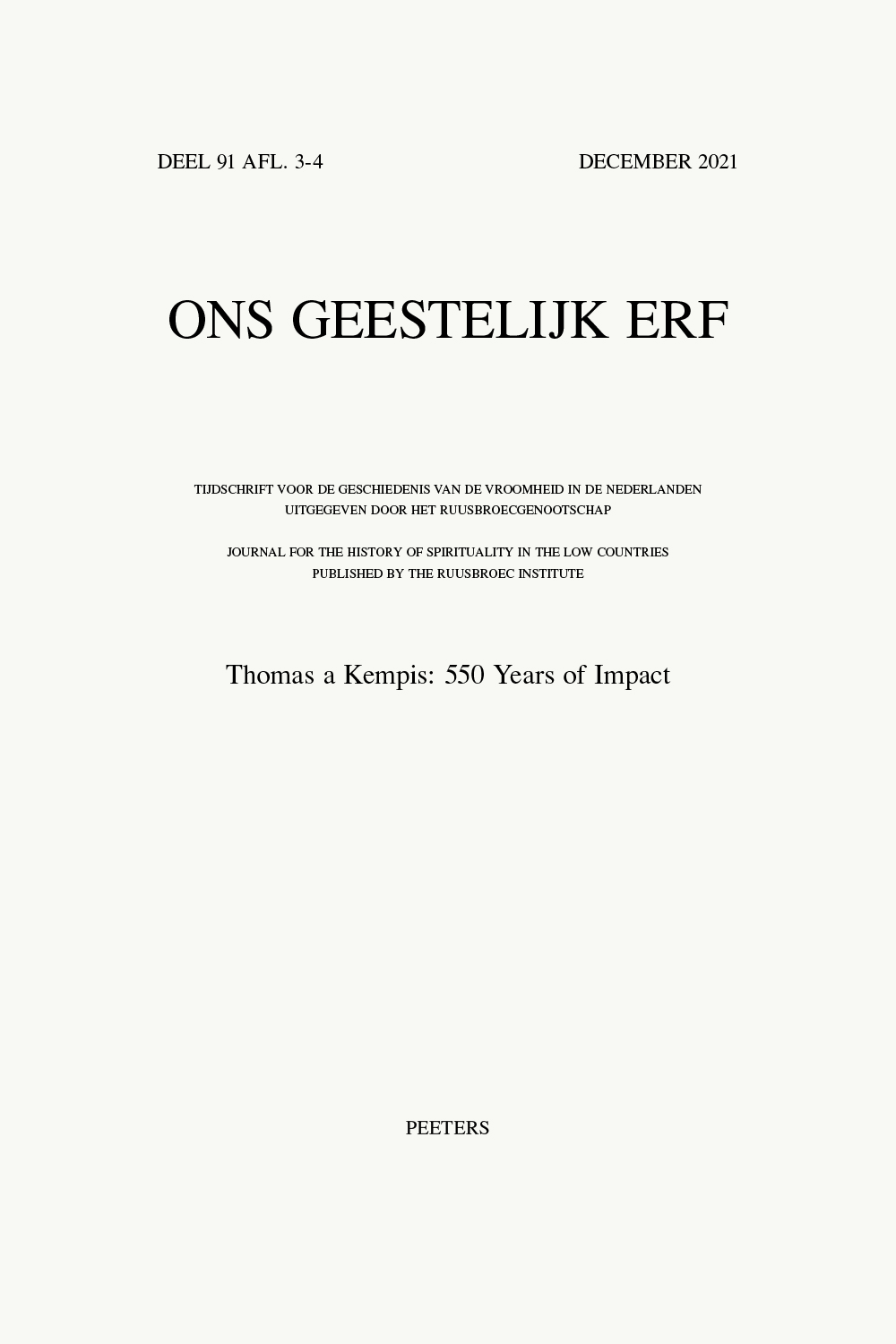 previous article in this issue previous article in this issue | next article in this issue  |

Preview first page |
Document Details : Title: Laatmiddeleeuwse mirakelprotocollen uit Wezemaal in een mirakelboekje uit 1633 Author(s): MINNEN, Bart Journal: Ons Geestelijk Erf Volume: 92 Issue: 1 Date: 2022 Pages: 58-87 DOI: 10.2143/OGE.92.1.3290344 Abstract : Late medieval miracle protocols from rural pilgrimage churches in the Low Countries are hardly known. In this article, we draw attention to a small series of late-medieval miracle protocols from the village of Wezemaal (Belgium, Flemish Brabant), transmitted in a recently discovered miracle booklet from 1633. The miracles occurred in the years 1508-1518, the period in which the pilgrimage to St. Job in the St. Martin’s parish church of Wezemaal was at its height, as a result of the ‘disease of St. Job’ (or syphilis) that since 1495 raged over Europe. The discovered miracle protocols not only provide a clearer picture of the symptoms of the disease, the motives and the identity of the pilgrims, but also of the late-medieval pilgrimage practice of a specific group of pilgrims. They also contain unique information about the original form of the protocols, an aspect that has received little attention so far. The formal inner characteristics are derived from charters. In contrast to other, mostly urban places of pilgrimage in the Low Countries, the church of Wezemaal did not possess a miracle book with numerous protocols written down or glued in. The Wezemaal protocols were written out with great care, in Dutch and French, on parchments, which were hung on the inner walls of the church, clearly visible for everyone, both Dutch and French-speaking pilgrims. |
|


